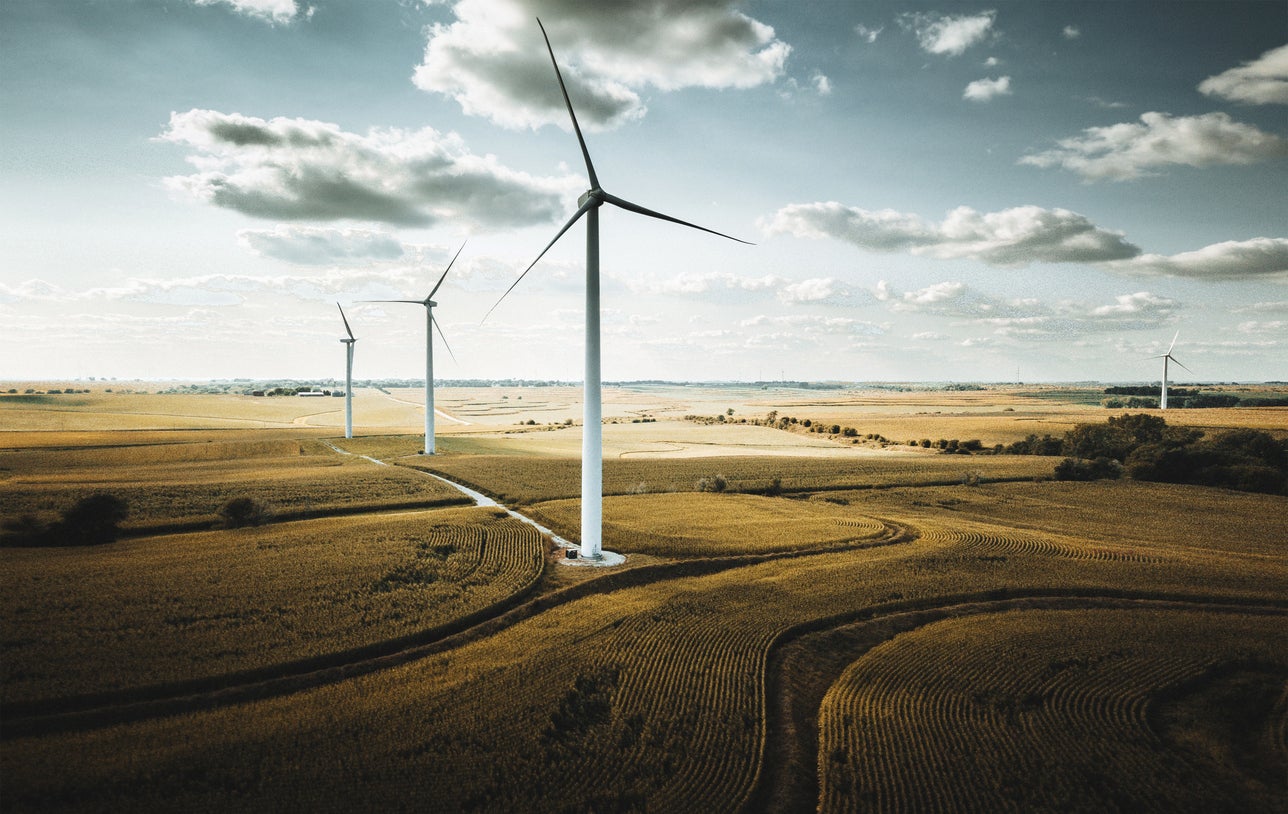Wind energy production costs could be halved by 2050, survey suggests
Developments in technology will drive down costs, experts say

Your support helps us to tell the story
From reproductive rights to climate change to Big Tech, The Independent is on the ground when the story is developing. Whether it's investigating the financials of Elon Musk's pro-Trump PAC or producing our latest documentary, 'The A Word', which shines a light on the American women fighting for reproductive rights, we know how important it is to parse out the facts from the messaging.
At such a critical moment in US history, we need reporters on the ground. Your donation allows us to keep sending journalists to speak to both sides of the story.
The Independent is trusted by Americans across the entire political spectrum. And unlike many other quality news outlets, we choose not to lock Americans out of our reporting and analysis with paywalls. We believe quality journalism should be available to everyone, paid for by those who can afford it.
Your support makes all the difference.The cost of harvesting wind energy could be halved by 2050, according to a new survey by American government scientists.
Experts at the Lawrence Berkeley National Laboratory said more efficient turbines combined with lower capital and operating costs could see reductions of between 17 and 35 per cent by 2035.
The savings could be between 37 and 49 per cent by 2050, according to the survey, published in the journal Nature Energy.
Researchers polled 140 wind experts — from fields including business and engineering — on the prospects for three forms of the renewable energy source: land-based sites, fixed-bottom offshore generators and floating offshore turbines.
The anticipated future costs for all three forms of harvesting wind energy were half what experts predicted in a similar study in 2015.
The survey, which included US Department for Energy contributions, also uncovered insights on the possible magnitude of and drivers for cost reductions, anticipated technology trends, and grid-system value-enhancement measures.
"Wind has experienced accelerated cost reductions in recent years, both onshore and offshore, making previous cost forecasts obsolete. The energy sector needs a current assessment," said Ryan Wiser, senior scientist at Berkeley Lab.
"Our 'expert elicitation' survey complements other methods for evaluating cost-reduction potential by shedding light on how cost reductions might be realized and by clarifying the important uncertainties in these estimates."
Berkeley's survey, which was supported by IEA Wind Technology Collaboration Programme, is likely to boost President Biden's climate agenda and broader efforts to tackle climate change.
In January, Mr Biden signed an executive order aiming to maximise offshore wind potential and identified wind power as a key component of the nation's renewed efforts to reduce emissions.
As part of a series of measures aimed at tackling the climate crisis, the president announced a pause on new oil and gas leasing on US public lands and waters.
His administration escalated the climate crisis to a national priority level and laid out a conservation plan that would set aside millions of acres for recreation, wildlife and climate efforts by 2030.
Some $2 trillion has been pledged to help the US achieve those aims.
Renewable energy sources such as wind and solar will play an important role in efforts to reach net-zero carbon emissions by mid-century.
According to experts, a key driver in the improvement of wind energy is turbine size.
"All else being equal, these trends will enable wind to play a larger role in global energy supply than previously thought while facilitating energy-sector decarbonization," concluded co-author Joachim Seel, also with Berkeley Lab.
"Analysts, investors, planners, and policymakers should avoid outdated assumptions and forecasts."
Join our commenting forum
Join thought-provoking conversations, follow other Independent readers and see their replies
Comments